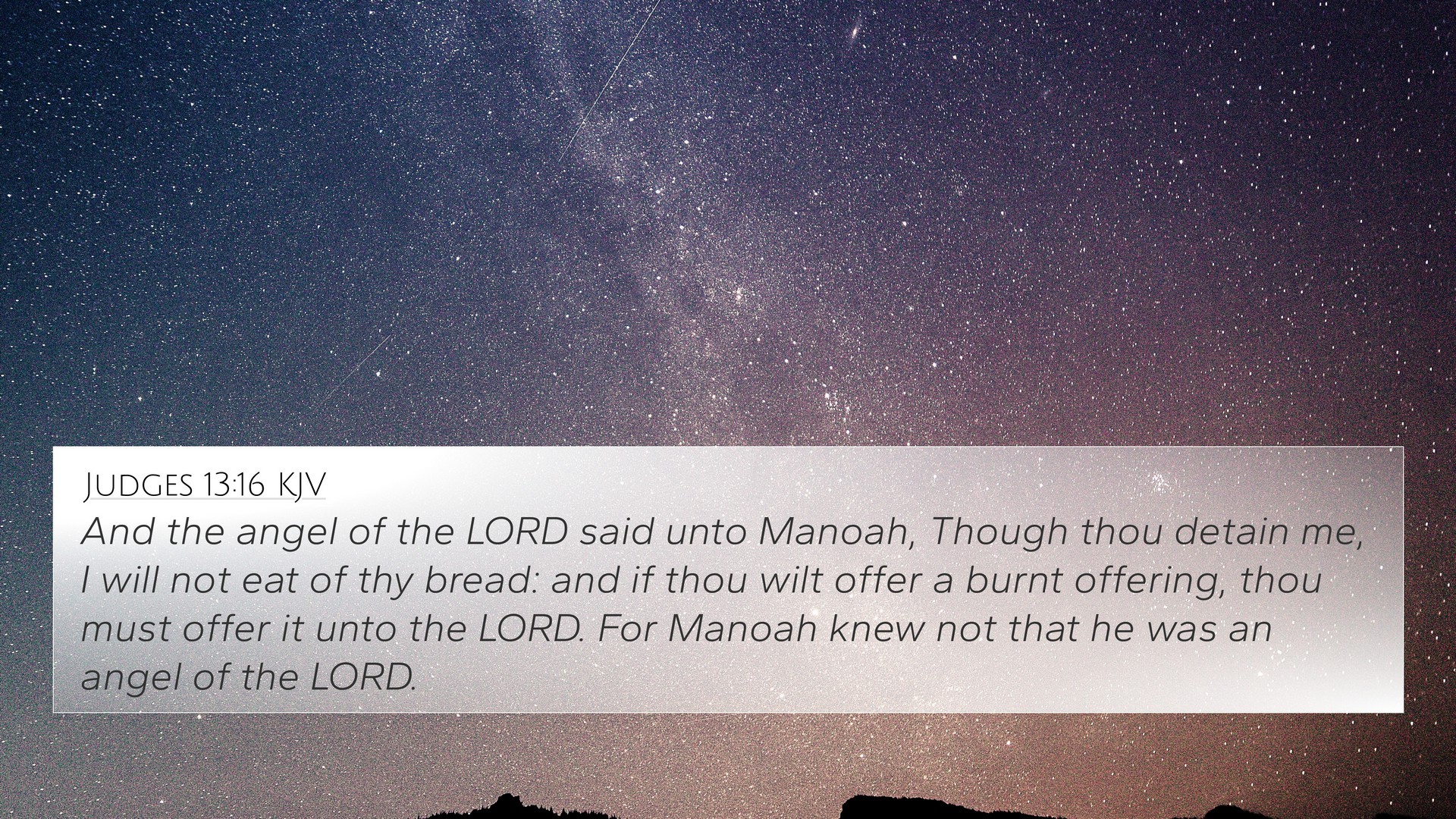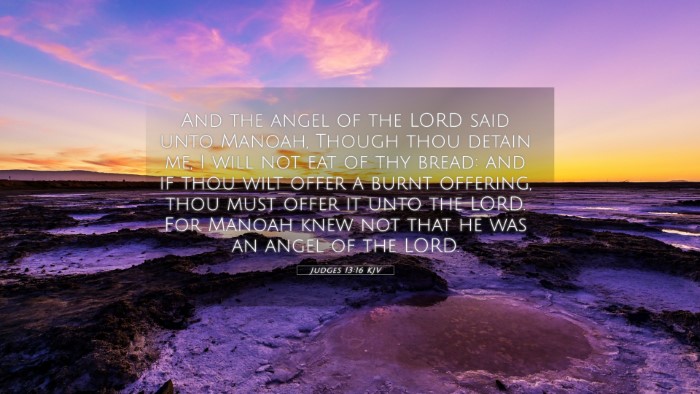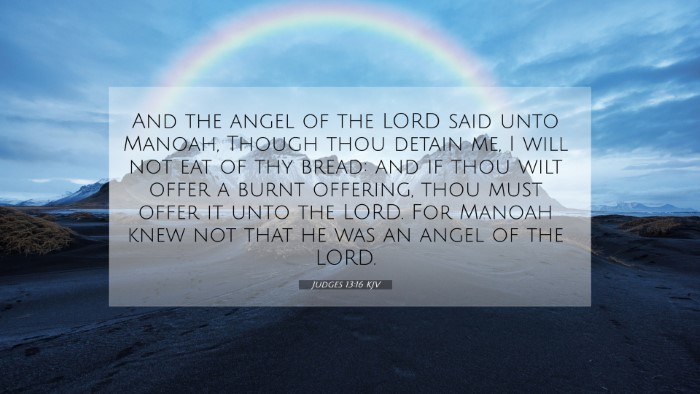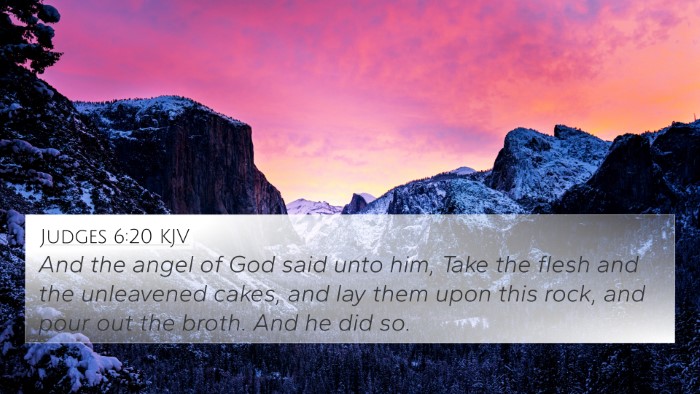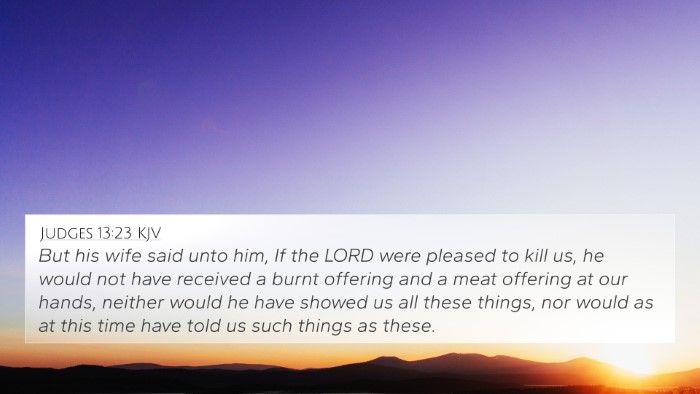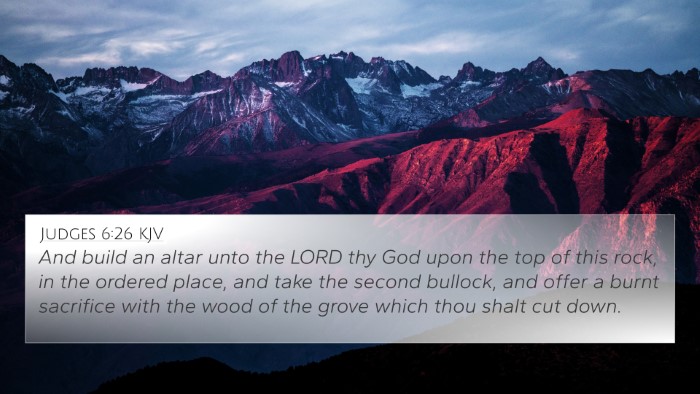Understanding Judges 13:16
Judges 13:16 states: "And the angel of the LORD said unto Manoah, Though thou detain me, I will not eat of thy bread; and if thou wilt offer a burnt offering, thou must offer it unto the LORD." This verse provides critical insights into the nature of divine communication and the engagement between God and humanity.
Commentary Insights
In this context, we explore interpretations from esteemed public domain commentaries by Matthew Henry, Albert Barnes, and Adam Clarke.
Matthew Henry's Commentary
Matthew Henry emphasizes the significance of the angel's refusal to eat: “He came with a message and purpose, not to be distracted by earthly sustenance.” Henry elaborates that the angel's focus on the divine mission highlights the gravity of God's message to Manoah and his wife regarding the birth of Samson. This reinforced the notion that divine encounters prioritize spiritual matters over physical needs. Furthermore, it illustrates God's sovereignty, where offerings must be directed toward Him alone, reminding the faithful of the rightful devotion owed to the Creator.
Albert Barnes' Notes
Albert Barnes adds a layer of understanding to the verse by explaining the context of sacrifices: “The angel insists on the need for an offering to be made unto the LORD, indicating the significance of proper worship.” He contemplates how this directive serves as a foretelling of Samson's role and the implications of Nazarite vows, which intended to set apart persons for God’s service. Barnes points out the importance of the burnt offering as a symbol of complete surrender and dedication to God, which resonates deeply within the broader themes of sacrifice throughout the Scriptures.
Adam Clarke's Commentary
Adam Clarke's perspective reveals a thoughtful exploration of the event: “The visit of the angel illustrates a heavenly intervention in human affairs, emphasizing that divine intentions are communicated with clarity and purpose.” Clarke further notes the necessity of Manoah's understanding of the offering process, illustrating the distinct relationship between God and His people, where obedience and understanding coalesce. The lack of physical engagement between Manoah and the angel signifies that true communion with God transcends material interaction.
Bible Cross-References
This verse connects with several other Scriptures that deepen its meaning:
- Exodus 23:15 - The mandate to present offerings after divine encounters.
- 1 Samuel 15:22 - God’s desire for obedience over sacrifices.
- Romans 12:1 - The call to present our bodies as living sacrifices.
- Leviticus 1:9 - The procedure of burnt offerings in worship.
- Hebrews 13:15 - Offering praises to God as a key aspect of worship.
- Genesis 18:1-3 - Abraham’s encounter with heavenly visitors and his offerings.
- 1 Kings 18:36 - Elijah’s offering in the context of divine revelation.
Thematic Connections
Judges 13:16 provides a rich template for understanding various Biblical themes:
- Divine Communication: This verse models how God communicates an essential purpose and the expectations surrounding worship.
- Sacrificial Worship: The emphasis on burnt offerings reflects the historical context of worship and its evolution into the New Covenant.
- Obedience and Faith: Manoah's eagerness to respond paves the way for understanding the relationship between faith and action.
Conclusion
In summary, Judges 13:16 enriches our understanding of divine encounters and the requirements of worship. The cross-references provide a comprehensive perspective on the themes of offering, communication, and faith, offering a robust avenue for further study and reflection in the context of both Old and New Testament teachings. As one engages in Bible cross-referencing, this verse serves as a vital junction in scriptural cross-referencing and thematic Bible verse connections.
